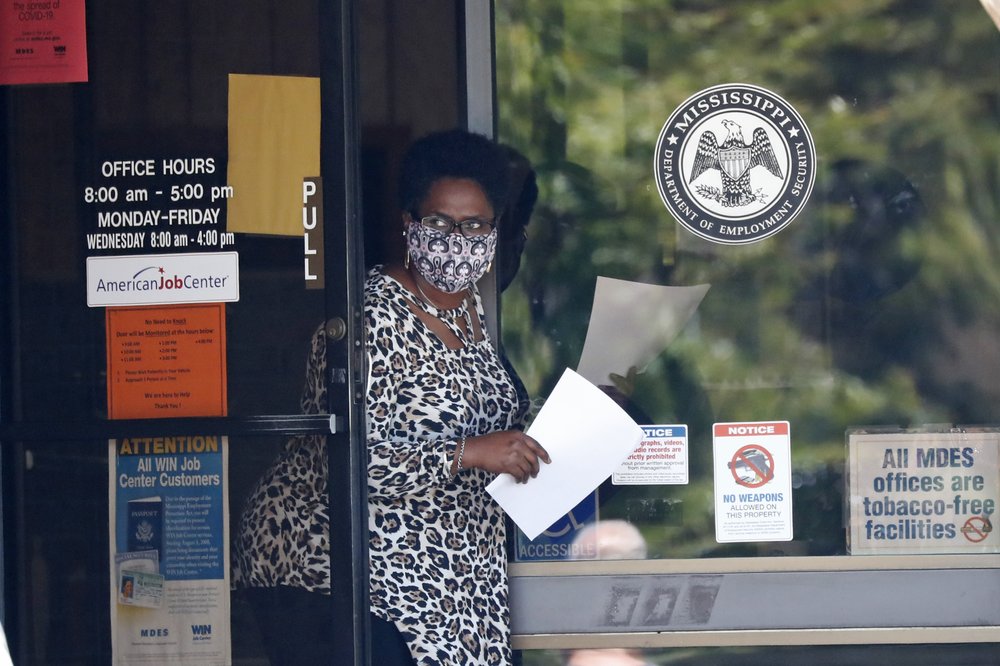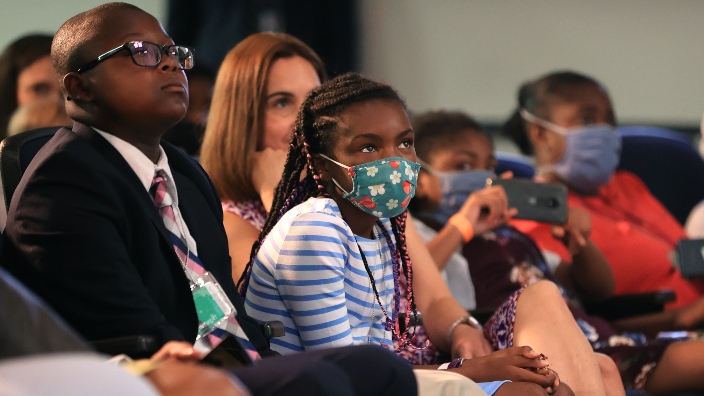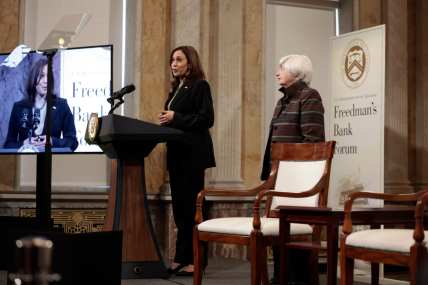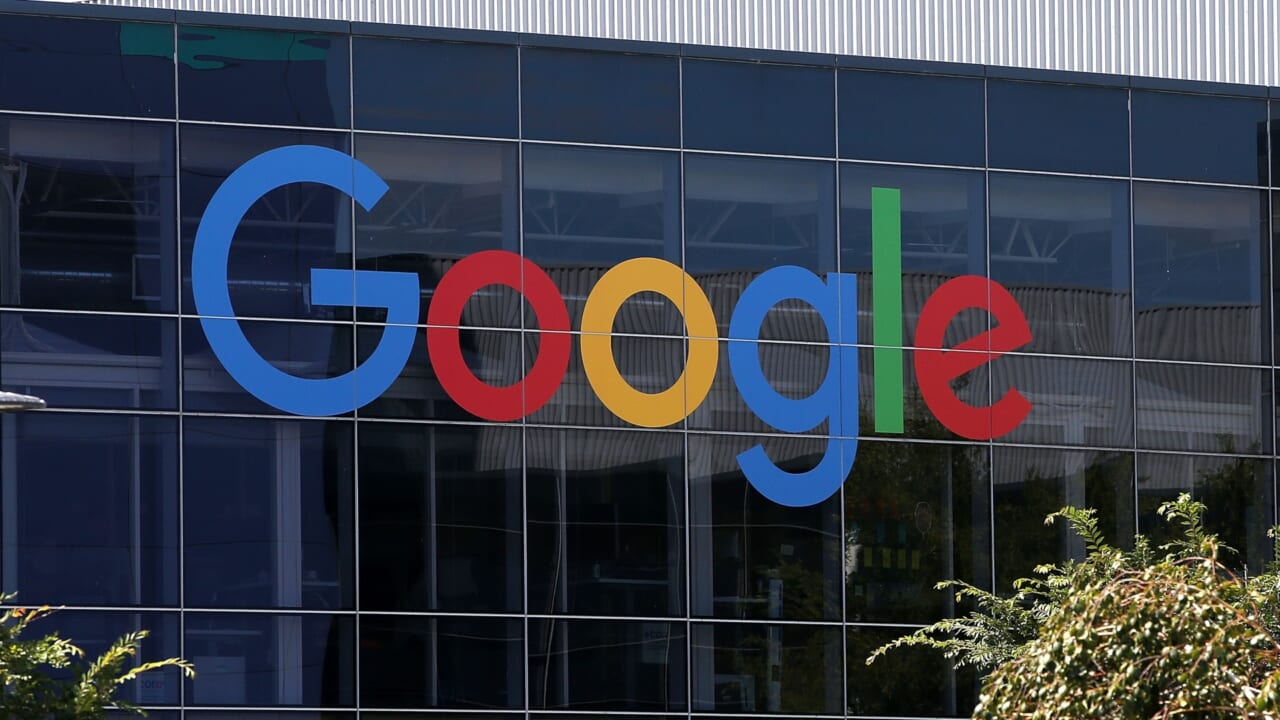As virus rages on, Biden White House vows to address unemployment, economic woes in Black communities
EXCLUSIVE: U.S. Labor Secretary Marty Walsh tells theGrio that the Biden-Harris administration will be 'aggressive' at remedying the economic challenges for Black and Brown Americans.
COVID-19 is raging and the latest round of the deadly virus has pushed the focus not only on physical health but the health of the economy. This moment comes during what is known as the “Great Resignation,” a labor occurrence in recent months that has seen a large number of Americans walking away from their jobs.

In October 2021, 4.2 million people quit their jobs and in November 2021 a record 4.5 million Americans left their employment.
Looking at the economic numbers on a broader scale there is confusion and conflicting data that offers two different scenarios of the current state of the economy. In an exclusive interview with theGrio, U.S. Labor Secretary Marty Walsh cataloged, from his vantage point, what’s at play for working Americans across the country.
“A lot of people left work … One is, I think because of the fear of the pandemic and fear of getting COVID, so many of them are taking care of their kids and their family members at home,” Secretary Walsh told theGrio. “And some people are saying, ‘Wait a second, I was working in a job that I wasn’t satisfied in. I wasn’t making enough money for my need to raise my family.”
The U.S. unemployment rate remains low at 4.2%, according to Labor Department data – the lowest it’s been since before the U.S. pandemic shutdown in March 2020. Meanwhile, the Black jobless claims stand at 6.7% from November 2021 compared to 10.3% for the same month a year prior. The Biden White House says these numbers are a sign that the economy is getting better even as the coronavirus is worsening.

Yet, the Black jobless numbers have been and are still a concern as the economy could shift for the worse at any moment in this pandemic season.
Leon Russell, chair of the National Board of the NAACP told theGrio, “The response to COVID for Black America is a catch 22. On the one hand we are the most disproportionately impacted community when it comes to the serious effects of the virus. On the other hand Black workers are also disproportionately represented in the designation ‘essential workers.’”
Russell added, “This means that until we deal with economic/pay disparities and the negative impacts of institutional or structural racism, the Black community will suffer and therefore the economy will suffer. These are challenges that must be faced by our nation’s leader and that must be addressed now, before the next national crisis.”
So what is the Biden-Harris administration doing to provide a safety net and or a softer landing for Black America and bridging the economic and pay disparity gaps, particularly during the pandemic?
Walsh said the Infrastructure Investment and Jobs Act, signed into law by President Joe Biden in November 2021, plays a big part in that cushion and safety net for minority economics.

“[President Biden] wants to make sure that equity is at the center of that in that bill. What does that mean? That means that these jobs, these construction jobs, these architecture jobs, these jobs in offices, that the communities of color have access to these jobs,” said Walsh.
The administration is looking at lessons learned from the past that did not fully capture the work and value of minorities. Walsh contends, “the president has asked his cabinet – myself and other folks in the cabinet – to make sure that this time is different, that the recovery is different, that everyone has access to it.”
Part of the administration’s strategy is ensuring Black and Brown Americans can access “good jobs.”
Walsh explained that “the safety net is making sure that we’re doing everything we can to keep the job site safe, to make sure that people are getting vaccinated, to make sure that people are wearing masks, make sure people are getting tested, making sure that not only is where people are working safe, but they can be safe going back home to their families.”
The labor secretary, who is a former mayor of Boston, added, “even though the unemployment rate in America right now is 4.2%, the Black unemployment rate is still higher and we have work to do there.”
For the record, the Black unemployment rate has always been higher than the national rate, and in some instances, it has doubled that of the White unemployment rate. When it comes to doing better with Black unemployment, especially during the coronavirus pandemic, there is a call for safety nets for Black America as they serve disproportionately as frontline workers.

“We acknowledge that at the beginning of the pandemic our essential workers were our grocery store workers, were our delivery drivers, were our bus drivers, our first responders … many of those folks are from the African-American community, Black and Brown community,” Labor Secretary Walsh told theGrio.
“We have to continue to acknowledge that this is not over and they’re still at the frontlines. And they have been the entire pandemic.”
Walsh added that the administration will be “aggressive” at the top of this year with priority agenda items that help create positive economic movement and parity. He noted that there is crucial funding in the Build Back Better bill, currently stalled in the U.S. Senate, that could provide needed economic support for Black and Brown communities.
“There is money in there for child care … there’s money in there to expand the child tax credit to end child poverty … [and] elder care,” said Walsh, who emphasized the need for the administration and Democrats to “work” to ensure the comprehensive legislation is passed.

“There is a lot of safety nets in these bills, and when I say safety nets I mean investments, that we’re going to make in America and that will help communities across our country, particularly the African American community, Latino community and other communities of color,” said Walsh.
“There’s a lot in the legislative agenda. The Voting Rights Act that the president is pushing, making sure that immigration reform that the president is pushing and some of these other investments,” he added.
“We’re going to be very aggressive in the beginning of the year looking to make sure we pass some of this good legislation.”
Have you subscribed to theGrio podcasts “Dear Culture” or “Acting Up?” Download our newest episodes now!
TheGrio is now on Apple TV, Amazon Fire and Roku. Download theGrio.com today!


